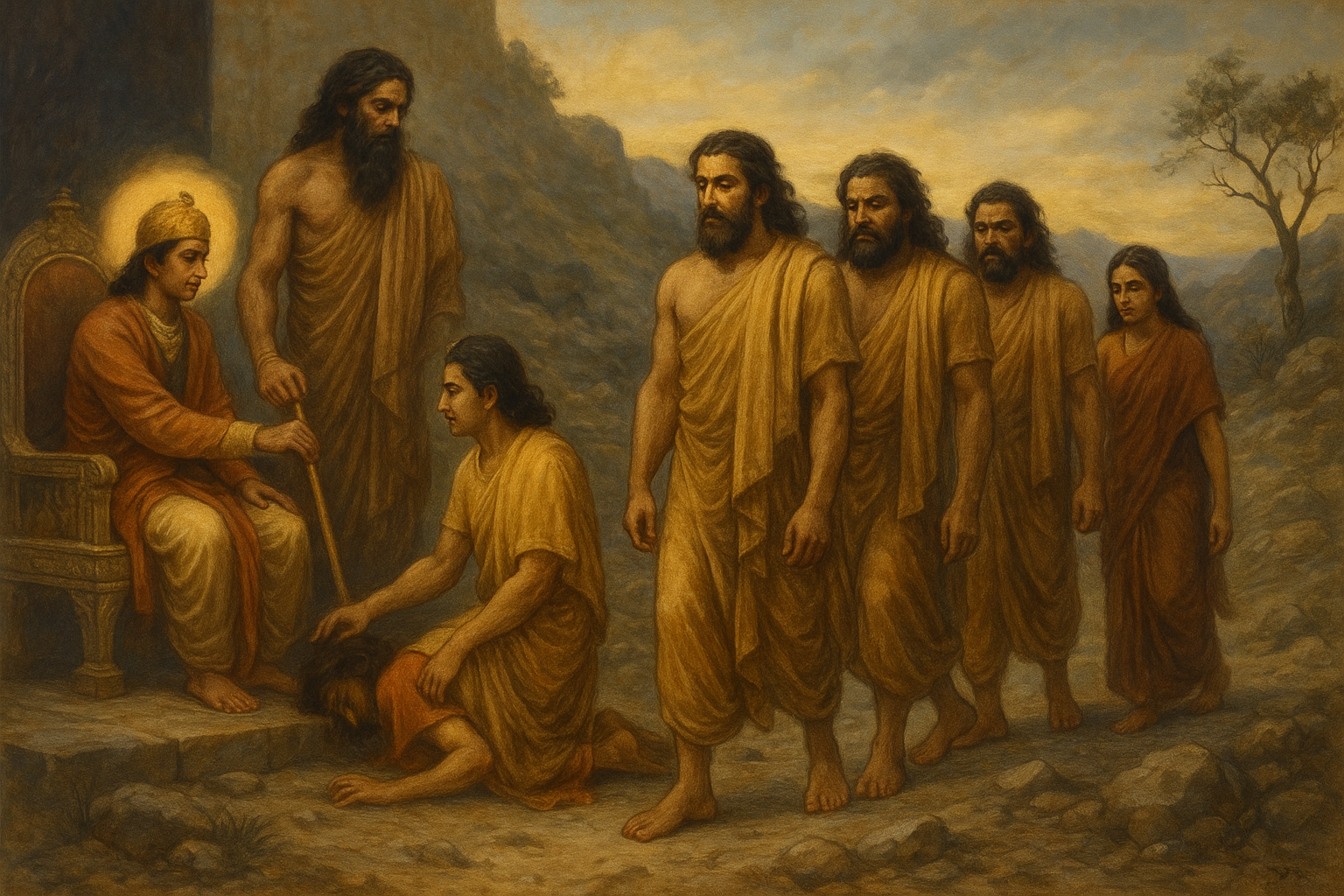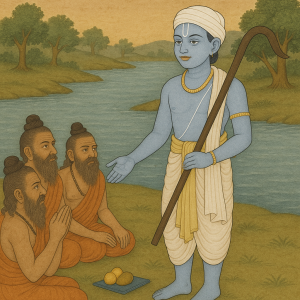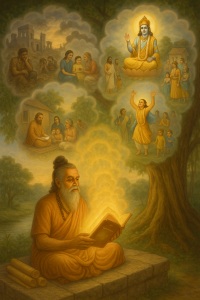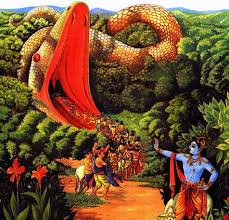The End of the Mahābhārata Era
After the departure of Lord Śrī Kṛṣṇa and the submergence of Dvārakā, the Earth entered a new phase—the beginning of Kali-yuga, the age of darkness and confusion.
The Pāṇḍavas, who had ruled the kingdom with justice, compassion, and divine guidance, felt the void left by Kṛṣṇa’s absence. Their strength of arms, clarity of vision, and joy in ruling all seemed to fade. Yudhiṣṭhira, the noble king, knew the time had come to renounce the throne and retire from worldly duties.
Arjuna’s Realization
Arjuna, still grief-stricken by his inability to protect the Yādava women and the loss of his divine powers, spoke to his brothers:
“I now understand, all that I was—all strength, knowledge, fame—was only by Kṛṣṇa’s mercy. With Him gone, my bow is but wood, my hands are but flesh. Let us not cling to a kingdom that He no longer walks upon.”
Their hearts united in this realization, the five Pāṇḍavas—Yudhiṣṭhira, Bhīma, Arjuna, Nakula, and Sahadeva—prepared to end their royal lives in detachment and devotion.
The Coronation of Parīkṣit
Before departing, Yudhiṣṭhira installed Parīkṣit Mahārāja, the grandson of Arjuna and son of Abhimanyu and Uttarā, upon the imperial throne.
Though just a youth, Parīkṣit was noble, dhārmic, and protected by Kṛṣṇa even in the womb from the deadly weapon of Aśvatthāmā. He was destined to carry forward the legacy of righteousness in Kali-yuga.
Yudhiṣṭhira blessed him:
“Rule as a servant of the people, not as their master. Worship Govinda. Protect the brāhmaṇas, cows, and devotees, and let dharma guide your every act.”
The Pāṇḍavas’ Final Journey
Renouncing their royal robes and ornaments, the five brothers, along with Draupadī, clothed themselves in simple garments and left for the Himalayas, beginning their final pilgrimage toward Mahāprāsthāna, the great departure.
One by one, along the journey, Draupadī, Sahadeva, Nakula, Arjuna, and Bhīma fell to the ground, their time on Earth ending. Only Yudhiṣṭhira, calm and unwavering, reached the gates of Svarga (heaven).
When asked why he alone survived the journey, he replied:
“I have always upheld truth and dharma, even when it cost me everything.”
Lord Dharma, his divine father, welcomed him to the eternal realm.
The Dawn of Kali-yuga
With the departure of the Pāṇḍavas and the Lord, Kali-yuga fully descended:
- Dharma declined
- Kings became selfish
- The brāhmaṇas became weak in practice
- Devotion faded from the hearts of the people
But in the midst of this darkness, the sages preserved the Bhāgavatam, the Gītā, and the holy names of the Lord, which would shine as guiding lights for the fallen souls of the age.
Lessons to Be Learned:
- Worldly strength is temporary, but spiritual surrender is eternal.
- Even the most righteous rulers must one day renounce all and return to the Lord.
- True kingship lies not in conquest, but in service, humility, and devotion.
- In Kali-yuga, dharma is sustained only by the chanting of the holy name, study of śāstra, and association with saints.
- The legacy of the Lord’s devotees is the greatest treasure left behind.
Origin of the Story: Harivamsa Purana 3 – Chapter 142: The Departure of the Pāṇḍavas and the Onset of Kali-yuga



